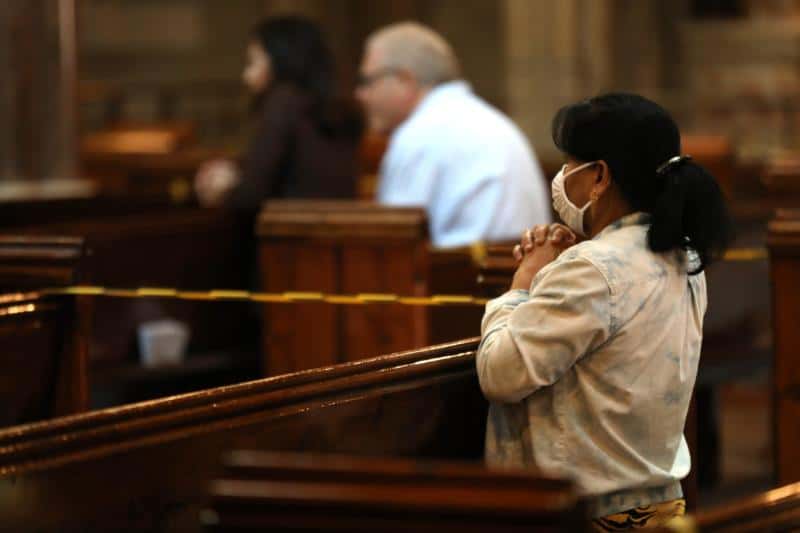
VATICAN CITY (CNS) — Besides the immediate considerations of trying to stay healthy, to mourn the dead and protect others, the coronavirus pandemic should be prompting Christians to reflect on their faith, Pope Francis wrote.
“The pandemic poses fundamental questions about happiness in our lives and about the treasure of our Christian faith,” he wrote in the preface to a short book of initial theological reflections prompted by COVID-19 and its global impact.
Originally published in German with the title, “Being Christians in the Coronavirus Crisis,” the book was curated by Cardinal Walter Kasper and Pallottine Father George Augustin, director of the Cardinal Walter Kasper Institute for Ecumenism, Theology, and Spirituality.
The Italian edition, titled “Communion and Hope,” was published in late July by the Vatican publishing house. In addition to the preface by Pope Francis and essays by Cardinal Kasper and Father Augustin, the book includes essays by: U.S. Paulist Father Mark-David Janus, who was struck by the virus; the Czech theologian Father Tomas Halik; Swiss Cardinal Kurt Koch, who succeeded Cardinal Kasper as president of the Pontifical Council for Promoting Christian Unity; and Archbishop Bruno Forte of Chieti-Vasto, Italy.
“This crisis represents an alarm that leads to a reflection on where we sink the deepest roots that support all of us in a storm,” the pope wrote. “It reminds us that we have forgotten and neglected some of the important things in life and makes us reflect on what is truly important and necessary and what is less important or only apparently so.”
While the initial period of lockdown was “a painful time of eucharistic fasting” for many Catholics, it also showed them that Christ is present, as he promised, where two or three gather in his name, the pope said.
As the pandemic continues, he said, Christians should turn more resolutely to God, “our help and our aim,” and should listen more carefully to the cry of the poor and of the earth.
Theological reflection on the pandemic and the experience of the past months, he wrote, should give rise to “new hope and new solidarity.”









